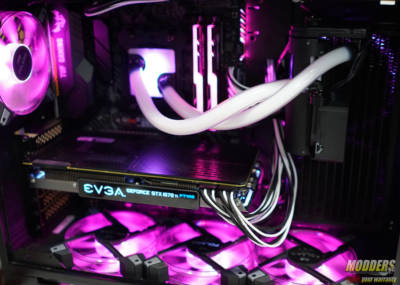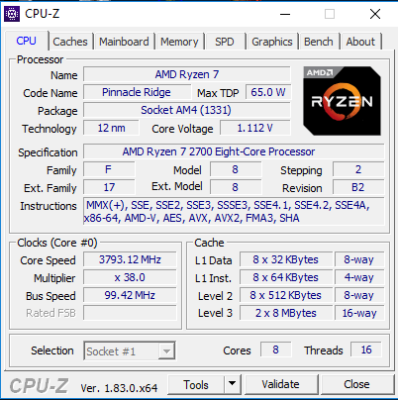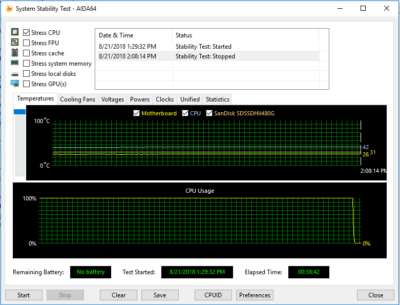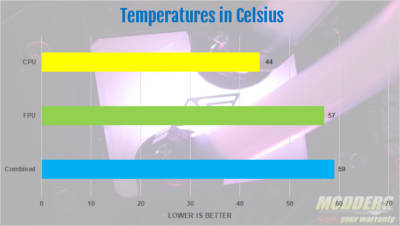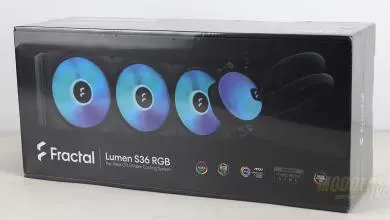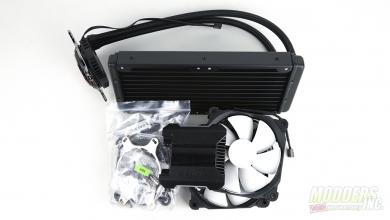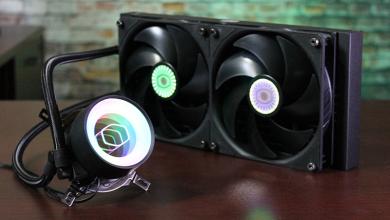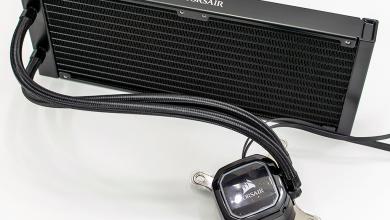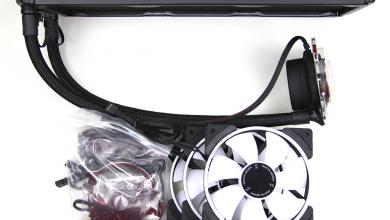Test System, Testing Procedures and Results
Test System
- ASUS X470 Tuf Motherboard
- AMD Ryzen 7 2700 @ 3.8 GHz
- Skill Trident Z DDR4 3200 MHz CAS 15
- EVGA GTX 1070 ti FTW3
- Samsung 250 GB 960 EVO (OS)
- Seasonic X-Series 850 watt 80+ Gold PSU
- In Win 101 C Chassis
- Swiftech H240 X3 AIO Cooler
Software
- CPU-Z
- Core Temp
- AI Suite 3
- AIDA64 Engineer
Watercooling is the best way to cool your PC. However, it can be a bit intimidating to a new user. This is where the H240 X3 comes in to play. The performance I got out of the H240 X3 rivaled that of the custom Alphacool loop that was in the test system previously. On the AIDA64 stability test, the H240 X3 did a better job cooling our Ryzen 7 2700 that the custom loop. Running both the FPU and CPU stability tests, the H240 X3 ran 2 degrees cooler than the custom loop. Never going over 60C where the custom loop hit 62c. Not a huge difference, but where this is technically an AIO, still worth mentioning.
For coolers, I run the Aida64 Engineer stability test for about 30 minutes, then, let the system idle for another 30 minutes in between tests. I start at the processors stock frequency of 3.2 GHz. However, even when set to 3.2 in the BIOS, the R7 2700 would boost to 3.4 Ghz. I ran the stability test at both stock speeds, as well as overclocked. For overclocking, the R7 2700 was run at 3.8 GHz. This processor can overclock higher, however at 3.85 Ghz, the stability test failed at about 26 minutes. For cooler reviews, the test must run stable for 30 minutes. So, I dialed the speed down to 3.8 GHz and the test ran for 38 minutes before I stopped it.
For testing, we use the stability test in AIDA64 Engineer. This test is designed to put a 100% load on different parts of your system. I ran both the AIDA64 CPU and FPU stability tests separate, as well as together. To no surprise, combining the CPU and FPU tests yielded the highest temperature. After over 30 minutes clocked at 3.8 GHz, the R7 2700 topped out at only 59°C. When I ran the FPU test alone, the max temp was 57°c. The CPU test yielded much lower temperatures. Still after over 30 minutes, the R7 2700 maxed out at only 44°c. This shows the CPU test to be less harsh on your system than the FPU test. I was very impressed with the results from the AIDA64 stability test. So much so, I had to run the tests again, and again. I have never used an AIO that kept a processor this cool during this specific test.
